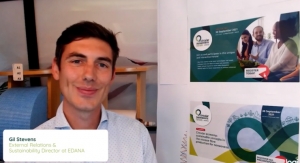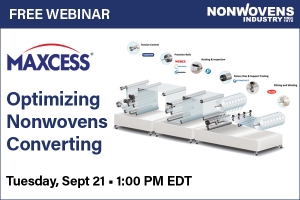These Nonwovens Standard Procedures help technically define the nonwovens industry, with specifiers for the properties, composition, and specifications of its products. Offering harmonized language for the industry across the U.S. and Europe, and recognized by many other individual markets, the procedures offer a way for the nonwovens industry to communicate both across the globe, and within the supply chain to ensure that product properties can be consistently described, produced, and tested.
The harmonized methods contained in the Nonwovens Standard Procedures (NWSP) edition include 107 individual test procedures and guidance documents to support applications across the nonwovens and related industries, and are available on both www.inda.org and www.edana.org.
“The Nonwovens Standard Procedures document is designed to provide a standard series of test methods of the various properties desired in nonwovens and engineered fabrics. It is an indispensable resource for innovators and product developers to communicate with buying influences and ensure their products meet the exact specifications demanded by markets and customers. Additionally, laboratory personnel will benefit with enhanced accessibility to the most comprehensive body of nonwovens test methods available in the industry,” says Dave Rousse, INDA President.
“I am delighted with the complete revision and update to the Nonwovens Standard Procedures,” says Pierre Wiertz, General Manager of EDANA. “They undoubtedly constitute the best set of globally applicable test methods for the nonwovens and related industries. With this unique tool, together INDA and EDANA again provide our members and the larger nonwovens community with an enriched common language intended to facilitate their business, and ultimately, to help them develop solutions to best fit users’ requirements.”
The 2021 edition includes updated or modified procedures with a numbering structure that makes the document intuitive to search and use. Additionally, each method also includes a page to summarize and track relevant changes made to the document. In an effort to make all methods more consistent, each one is now presented in a format building on the International Standards Organisation (ISO) template, facilitating any future possible submission to ISO in an effort to become a recognized international standard or technical specification.
As in previous editions, the table of contents for the Nonwoven Standard Procedures document includes references to existing related ISO standards, which makes it easier for technicians to choose the most relevant procedure or methods to apply to their product.
For more information, visit: https://www.edana.org/how-we-take-action/international-standards















